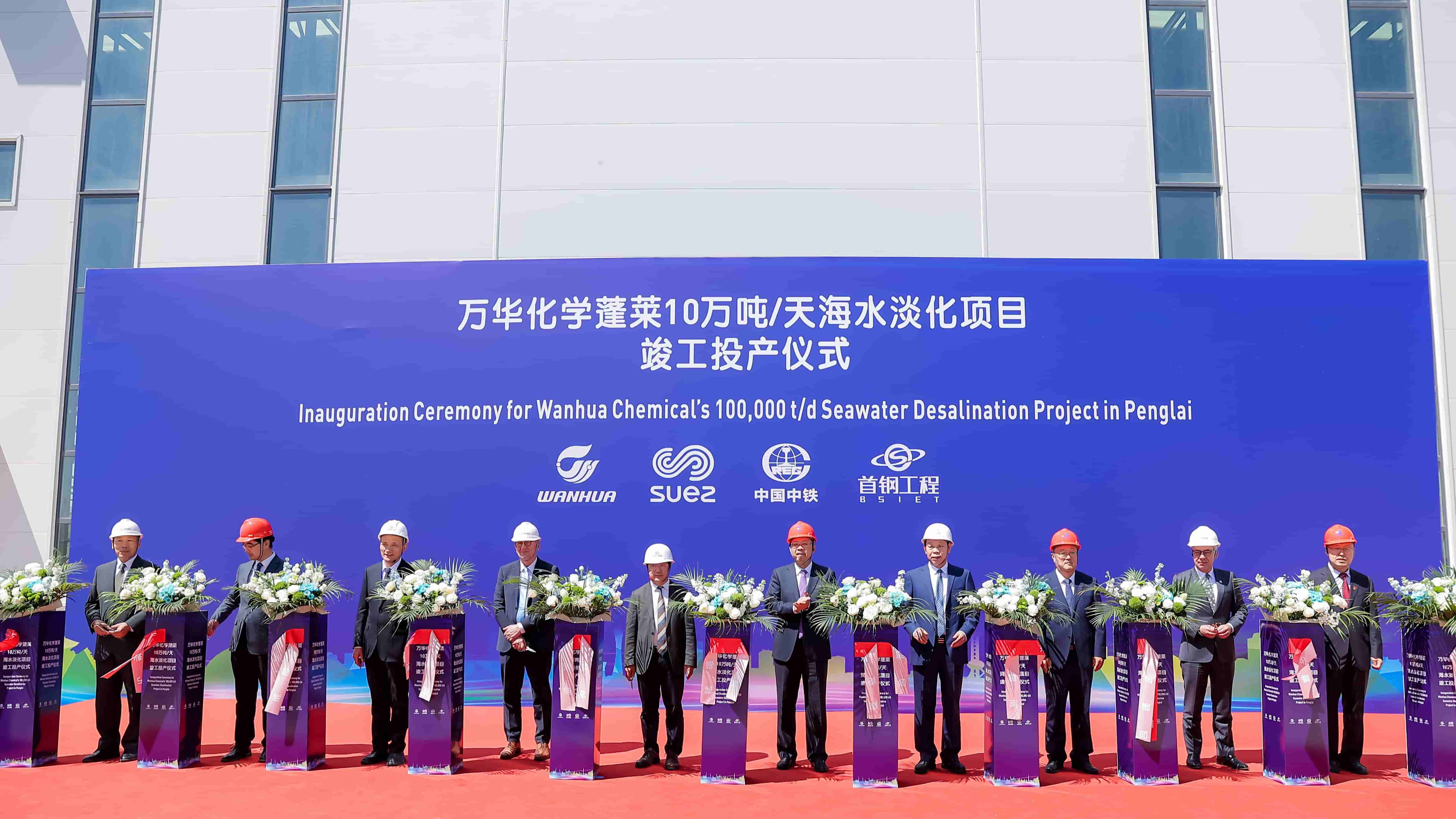SUEZ commissions China’s largest industrial membrane-based seawater desalination plant for Wanhua Chemical’s Penglai Industrial Park to support industrial needs while conserving scarce water resources
LIAO Zengtai, Chairman of Wanhua Chemical Group, said: “The completion of the Penglai seawater desalination project represents not only a firm step forward for Wanhua’s journey toward green and low-carbon industrial development, but also a significant milestone in the innovation and application of seawater desalination technology in China. Through our partnership with SUEZ, the project has achieved a world-leading standard by employing the advanced technology and the optimal process, thereby establishing a global benchmark for energy efficiency in the seawater desalination industry. As a leader in the chemical new materials industry, Wanhua will continue to partner with SUEZ to drive industry transformation and contribute to the global seawater desalination sector.”
WANG Jianying, Chairman of China Railway Shanghai Engineering Group Co., Ltd., said: “This marks the largest industrial membrane-based desalination project currently planned in China. With the shared mission to build it into a 'lighthouse' project, China Railway Shanghai Engineering Group has leveraged extensive resources, applied scientific planning, and maintained rigorous safety and quality management throughout the process. With the concerted efforts of the consortium partners, we achieved the high-quality delivery of the entire facility within 14 months, demonstrating our team’s unwavering commitment, resilience, and pursuit of the highest standards.”
WU Liyun, Chairman of Beijing Shougang International Engineering Technology Co., Ltd., said: “With nearly 800 projects for over 200 clients worldwide, this high-quality project exemplifies Shougang International Engineering's commitment to technology-driven innovation, utilising BIM technology to integrate the entire lifecycle of the desalination plant. Today, together with our partners, Wanhua Chemical Group, SUEZ, and China Railway Shanghai Engineering Group—all are leading companies in their respective fields—we celebrate this fruitful international cooperation in sustainable water solutions. We look forward to contributing further to the sustainable development of global water resources.”
Setting a new benchmark for China’s industrial seawater desalination plant
As a global leader in membrane-based seawater desalination engineering, SUEZ brings international expertise and innovation to this plant. The Group deploys advanced reverse osmosis membrane technology to convert seawater into freshwater, supplying it as the primary industrial water source for Wanhua Chemical's Penglai Industrial Park.
The facility employs low-carbon, energy-efficient, and environmentally responsible processes, achieving over 15% cost savings compared to conventional dual-membrane technologies1. With the full commissioning of first phase, it will produce 100,000 m³ of desalinated water daily, resulting in annual savings of over 36 million m³ of freshwater. Additionally, the facility features a highly advanced automation system, making it China’s first fully automated desalination plant.
Meeting industrial water needs and preserving resources
As part of its national water security strategy, China is broadening the large-scale application of seawater desalination. Shandong Province, for instance, faces acute water scarcity, with per capita water resources measured at less than one sixth of the national average. Leveraging its geographical advantages, Shandong has prioritised seawater desalination as a strategic, fast-developing industry.
This Penglai facility is a flagship initiative under China’s and Shandong Province’s seawater desalination strategies. Its signing during French President Emmanuel Macron’s state visit to China in April 2023—witnessed by senior officials from both countries—marks an important milestone in Sino-French cooperation on sustainable water solutions. By enhancing regional water resilience, the project helps ease local freshwater shortages while conserving scarce resources. It also sets a replicable model for water security in coastal areas and supports the climate change adaptation in the industrial sector.
1 The “dual-membrane technologies” integrates UF and RO technologies for desalination.


